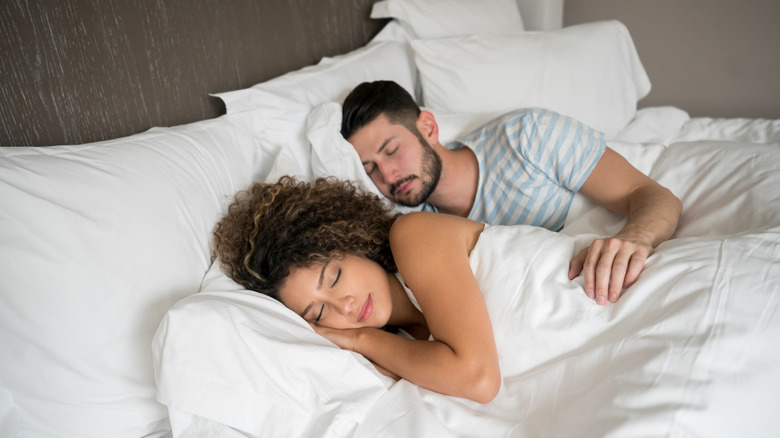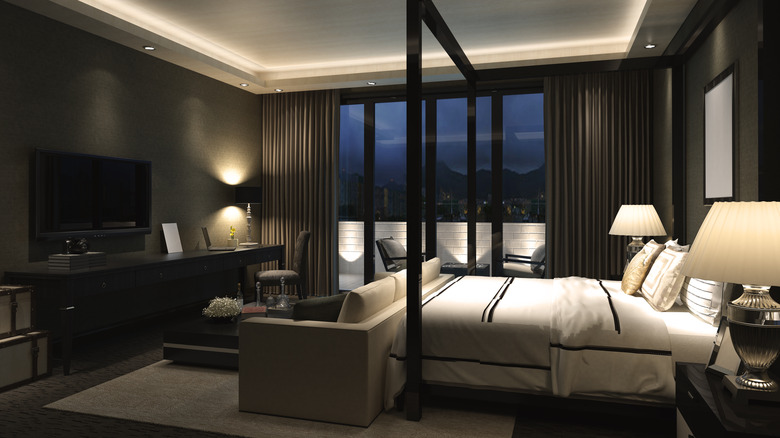Sneaky Ways Hotels Help You To Sleep Better Than Usual
If it's easy for you to get a perfect night's sleep in a hotel, you're not alone. According to a 2022 Hotels.com survey conducted with the help of OnePoll (via Forbes), 73% of travelers say they sleep better in hotel rooms than in their own homes. The finding might not be so surprising, given that a stay in a hotel offers respite from everyday stressors. Plus, it's common to be jet-lagged or exhausted from sightseeing while traveling — two factors that can encourage shut-eye even among insomniacs.
However, these aren't the only reasons you might sleep deeper and longer in a hotel. Often, hotels design rooms with sleep in mind, and they have some sneaky ways of helping you catch those much-needed ZZZs once the lights go out. One not-so-surprising trick: Hotels use superior bedding and mattresses. Many hotel chains, especially those on the luxury end of the spectrum, equip rooms with exclusive, custom-made mattresses that prioritize support, temperature regulation, and shock absorption. These mattresses are designed to accommodate a range of guest needs and tend to be comfier than the average mattress found at a furniture store or bedding warehouse shop.
The pillows at hotels can also be a game-changer for your slumber. A bad pillow — like the one you may have in your bedroom — can strain your neck, trigger allergies, or cause you to overheat. Hotel pillows are often chosen with these challenges in mind. You may even find a pillow menu at your hotel, allowing you to select the perfect cushion for your sleep style. It's no wonder sleep tourism is trending among travelers.
Hotel rooms are designed for sleep
If you feel drowsy in your hotel room even before hitting the sheets, this, too, is likely the result of the hotel's careful planning. You may notice that your hotel room is dim, even with all the lights on, and there are no bright fluorescent bulbs in sight. You may also find blackout curtains that shut out even the faintest glimmer of light. Besides offering a cozy ambiance, dark lighting is known to promote sleepiness. On the other hand, bright lights, particularly those with a cool tone, can prevent the production of the sleep hormone melatonin. Take note of which types of lamps and light fixtures are in your next hotel room and how sleepy you feel as a result.
Temperature can also play a role in sleep quality. People generally sleep best in cool temperatures, and toasty rooms can trigger insomnia and sleep disturbances. It makes sense, then, that you might notice the air conditioner blasting when you enter your hotel room. With that said, chilly temperatures aren't the norm at all hotels, and your sleep may consequently suffer. For example, Italy's odd heat and AC rule could burn you come summer, while it might help you snooze more soundly in the winter.

